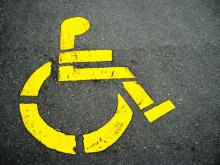 Financial hardship often goes hand in hand with medical difficulties.
Financial hardship often goes hand in hand with medical difficulties.
It is very common for people to become disabled, lose their jobs, and then file for bankruptcy.
But what happens to your disability benefits?
Do you get to keep them, or do they go to the court and to your creditors?
- The short answer is that you usually get to keep them.
There is, however, one type of disability benefit that you may not be able to keep.
To understand this, we first have to understand the types of disability payments that people can receive.
What are the 2 general sources of disability benefits?
There are two general sources of disability benefits that people receive:
- Social Security Disability
- Private disability insurance
SOCIAL SECURITY DISABILITY AND BANKRUPTCY
The Chapter 7 bankruptcy and Chapter 13 bankruptcy laws are very favorable to money that comes from Social Security, and disability is no exception.
Here’s what you need to know:
- All disability benefits from Social Security are exempt in bankruptcy, including the one time back award, and the future payments
- It also includes both SSI and SSDI.
- Money from Social Security is protected from all creditors, even if you don’t file for bankruptcy
PRIVATE DISABILITY INSURANCE
Some companies provide disability insurance policies and some people choose to pay premiums to buy private disability policies.
- If you have disability coverage, and then become disabled, the insurance company will send you a monthly payment until you stop being disabled
These payments can be large and often, depending on what your salary was when you became disabled and made the insurance claim.
However:
- Private disability insurance payments are not always exempt in bankruptcy.
When you file bankruptcy in Minnesota, you can choose between two lists of exempt property:
- The Minnesota list
- The Federal list
What is the difference?
If you choose the Minnesota list:
- Private disability insurance payments are exempt in bankruptcy, and you will not have to turn over the payments to your creditors
If you choose the federal list however:
- Payments from a private disability insurance policy are only exempt “to the extent reasonably necessary for the support of the debtor and any dependent of the debtor.”
Under law 11 U.S.C. Section 522(d)(10)(E) a court could decide that private disability insurance payments are more than is necessary for your support, and order you to turn over some or all of them to your creditors.
Which exemptions list should you choose?
Choosing which exemptions to use is a very technical subject and depends on all of your property.
If you are receiving money from a private disability insurance policy, you should consult with an attorney before you file for bankruptcy.
For example:
- The Minnesota exemptions might be better for your disability policy, but what about your tax refund?
Conclusion
Remember, this article only applies to people who file for bankruptcy in Minnesota; the laws in your state may be different.
If you are suffering with a long term injury, illness or medical condition, and struggling financially then why not see if we can help you?
Fill out our Free Evaluation Form to see if filing for bankruptcy is right for you.
Alternatively, why not Contact Us at 612.824.4357 and tell us how we can help you.
We’ve got offices in Minneapolis, St Paul, Blaine and Brookyln Park, so we’re easy to get to wherever you are in Minnesota.
Photo Credit: © Les Cunliffe @dreamstime.com

